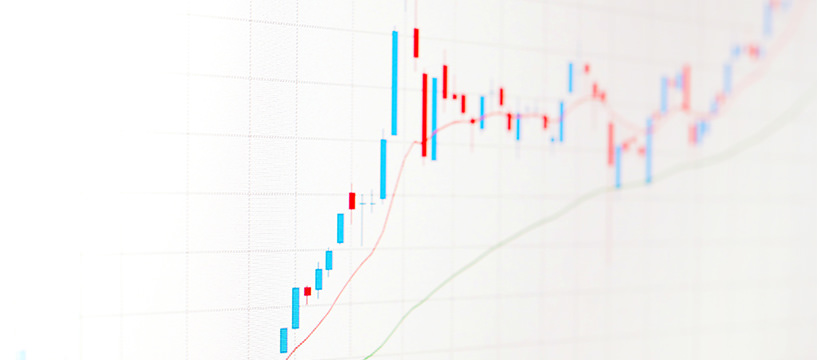Forex Trading: 9 Tricks to Start Strong
June 22, 2018

If you are an absolute novice in the field and start Forex Trading, it is very likely that you could quickly lose all your capital. This risk can be contained if you follow a stringent training path, even if self-taught, so that you approach the market as a prepared person rather than an absolute amateur.
However, even that may not be enough. To dramatically increase your chances of earning right from the start, you should follow some tips. Here are 9, ready to be put into practice.
Set your goals and choose a trading style compatible with them
Before starting your journey into the world of Forex Trading, you need to define your destination. Which, very simply, means setting goals. The next step is to decide what trading style you want to invest with. Obviously, style and objectives must be fully compatible. For example, you might set a goal to earn on volume rather than quantity. In this case, you would be in the field of swing trading, which is compatible with a style that focuses on caution, analysis, and seeking the right opportunity. Obviously, if you aim for quantity (of winning trades), the approach is radically different.
Choose a broker that offers an effective platform
There is a lot of talk about brokers. Indeed, the choice of broker is crucial. Often, however, criteria such as honesty, asset offering, and pricing policy are considered. All correct, of course. Nevertheless, there is also another criterion to consider: the platform. Not all brokers offer the same trading platforms. In fact, there is a certain variability in this regard. Therefore, pay attention to the platform offering of the broker you are following and evaluating. If you are an absolute beginner, it is best to opt for the classic MetaTrader 4, which is characterized by a good combination of accessibility, simplicity of interface, and effectiveness.
See Best Forex Brokers
Don't choose a trading strategy, create it
Trading strategy is also a much-discussed topic. Often, however, it is discussed in a "slightly" wrong way. In fact, there is talk of which strategy to choose. Well, the strategy should be created, if not from scratch, by adapting those offered by others (brokers, other traders, etc.). The strategy, in fact, should be personal, or at least compatible with the trading style, which is different from person to person. The advice, therefore, is to give up the classic packages and proceed with an autonomous and effective work of (re)elaboration.
Accept losses
This is a very controversial aspect. Especially if inserted in a context characterized by the desire to earn quickly. Well, to earn you need to know how to lose. Also because defeat in trading, if not daily bread, is not far from it. Therefore, it must be managed. Also because a loss is associated with an even greater risk, namely that of suffering an emotional shock such as to paralyze or, conversely, push to imprudence. If you have lost one or more trades, understand where you went wrong, roll up your hands and continue to follow your strategy. Obviously, if the defeats become numerous, consider changing your strategy.
Focus on money management
I imagine you already know the importance of money management if you have undertaken and profitably concluded a training course. However, you should know that, in reality, money management is more important than it seems. Very simply, it must be the guiding star of your trading activity, in good times and bad. This means that it must be used also and above all to define the maximum sustainable loss, trade by trade. This implies intensifying the analysis work because, for example, time and intellectual resources must be spent to very precisely define the right stop loss.
Specialize in a few assets
One of the open secrets of trading is specialization. Of course, there are really many stimuli, and just as many opportunities. However, it is necessary to take into account the enormous complexity that characterizes the currency market. In every context of life, including trading, specialization is a valid response to complexity. Therefore, rather than jumping from pillar to post, specialize in a few currency pairs, learn their secrets, develop effective trading strategies and analysis methodologies on them.
Don't overdo technical analysis
Technical analysis is a fundamental tool. Unthinkable to trade without it. However, even in this case, too much is too much. The problem is that many, especially at the beginning, approach technical analysis in an excessive way, almost as if it were an obsession. For example, an exorbitant number of indicators are used, perhaps complex ones, losing sight of the common thread of one's trading activity. It is actually a way to keep the sense of insecurity at bay.
Therefore, choose indicators intelligently and soberly, and dedicate the right amount of time to them. In short, keep in mind that, especially in Forex Trading, complexity does not rhyme with effectiveness.
Keep a diary
It seems like an out-of-place initiative, and perhaps a bit childish. But in reality, the role of the diary is greatly underestimated. In truth, it is a very useful tool. Its function is to clearly show the strengths and weaknesses of one's trading activity. A function that, if basically useful, even in good times, becomes indispensable if things go wrong. Identifying one's mistakes is the first step to not repeating them again, and only if you diligently and carefully keep note of what you do and how you do it is it possible to understand where you went wrong.
Therefore, keep a daily diary and use it to improve yourself.




